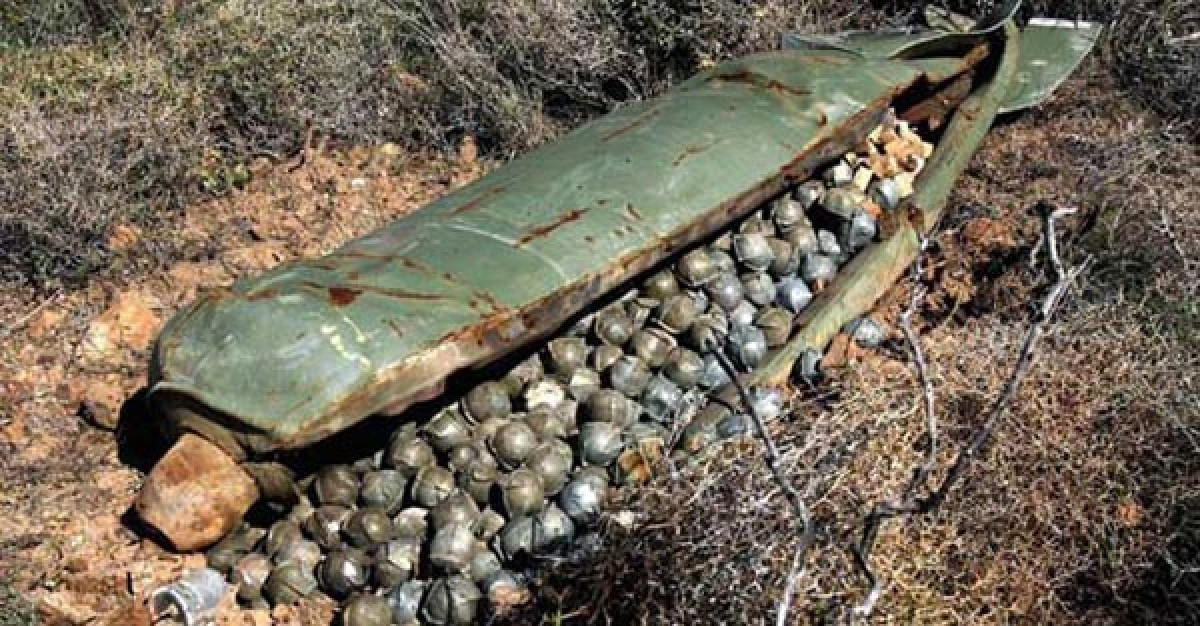Providing cluster bombs to Ukraine could be a wrong move for the US
The US has supplied large quantities of weapons and military equipment to Ukraine since the conflict broke out in February 2022, but this is the first time Washington has decided to send the country cluster bombs. According to analysts, the transfer of this type of weapon could be a wrong move by the Biden administration.
The administration of US President Joe Biden officially announced on July 7 that it would provide Ukraine with cluster bombs - a controversial move because this type of bomb has been banned by more than 120 countries due to concerns about the risk to civilians. According to analysts, the transfer of this type of weapon could be a wrong step by the Biden administration.

Message to Russia ahead of NATO summit
Disappointed by Ukraine's counter-offensive, the US is looking for ways to reverse the results on the battlefield, including providing banned bombs. Notably, the announcement was made ahead of the NATO Summit scheduled to take place in Vilnius next week. At this conference, the US and NATO are said to be planning to increase their role in the Russia-Ukraine war.
Pushed into a difficult position by the unexpected developments on the battlefield in Ukraine, the Biden administration was forced to take more drastic measures than ever before. The purpose of using cluster bombs is to cause significant damage to the enemy. The bombs can be dropped from aircraft, launched from missiles or artillery systems, to destroy enemy tanks, military equipment, personnel and simultaneously attack multiple targets. Many analysts speculate that by deciding to provide cluster bombs to Ukraine ahead of the NATO Summit, the US seems to want to send a message to Russia that NATO will stop at nothing, or in other words, they will do everything to achieve their goals.
At a press conference on July 7, US National Security Advisor Jake Sullivan defended the decision to send cluster bombs to Ukraine, considering it a measure to prevent a military disaster.
“The risk of civilian harm would be great if Russian troops and tanks overran Ukrainian positions and gained more territory because Ukraine did not have enough artillery shells,” Mr. Jake Sullivan said.
In addition, Mr. Jake Sullivan affirmed that the Ukrainian Government "has assured in writing that they will use cluster bombs very carefully" to minimize risks to civilians.
America made a big mistake?
The move comes more than a month after Ukraine launched a major counter-offensive that Western media expected to produce “significant breakthroughs.” However, Kiev suffered heavy losses while making very little progress in the initial stages of the counter-offensive, while the US struggled to make one step after another to support the Ukrainian army.
Mark Cancian, a senior adviser at the Center for Strategic and International Studies, a leading Washington, DC-based think tank, said cluster bombs could help Ukraine mount a counteroffensive to regain lost territory, and Kiev has previously asked the West to supply the weapons to fire into Russian trenches. But Mr. Cancian noted that cluster bombs are not a “game-changer” and “no single weapon can win the war.”
“There is no single weapon that is a game changer. The United States has always hoped that some kind of ammunition or weapon that they would give to Ukraine would help them win. There has been talk about Patriot missiles, about main battle tanks, F-16s, and now cluster bombs. These weapons are quite useful and quite effective on the battlefield, but they cannot help Ukraine win.”
“The problem with cluster munitions is that they have a low blast rate,” the analyst said. “Because they release a large number of submunitions. The rate of explosion depends on how they are dropped. Typically, the unexploded portion is 2%, and unexploded bombs pose a danger to civilians.”
The U.S. cluster bombs are no exception. Pentagon press secretary Patrick S. Ryder said the Defense Department has tested the cluster bombs in its arsenal, and the ones the U.S. is considering supplying to Ukraine will not include older variants with an unexploded fraction higher than 2.35 percent—meaning that for every two mother bombs launched, about three unexploded bomblets are scattered over the target area. But the percentage of unexploded bomblets observed in combat is seven times higher, the Washington Post noted. Recognizing the dangers of cluster bombs, Congress passed a law banning the transfer of cluster bombs with an unexploded fraction of more than 1 percent.
The United States remains the world’s largest donor to the clearance of landmines and unexploded ordnance, contributing $213 million in 2022 alone.
The Washington Post quoted Democratic Senators Patrick Leahy and Jeff Merkley as saying that President Biden’s approval of supplying cluster bombs to Ukraine was a serious mistake. It not only reversed decades of US policy but also complicated efforts to clear mines around the world. Not to mention, the decision would go against the stance of two-thirds of NATO members as well as many other allies and partners who are members of the Convention on the Prohibition of the Use of Cluster Munitions.
More worryingly, the US could risk damaging relations with key allies that are crucial to its collective defense strategy over a weapon that Washington should be leading the global effort to prevent. Finally, the decision to supply cluster munitions could undermine support for Ukraine among other nations, and their use would draw harsh condemnation from Kiev.

